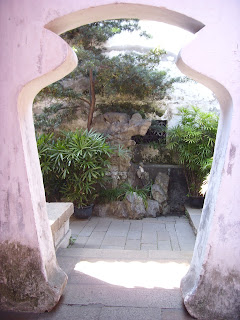Liberators
After a cider reception at the Mairie
the Veterans don’t want to visit graves
prefer a sunny afternoon in Avranches
have their own stories to remember
- their old
friends, their ghosts.
So it’s a small party of us who visit
the Brittany American Cemetery at Saint James
where the headstones are very white
fanning out in pristine rows
under chestnut trees
- simple marble
crosses
with some Jewish stars of David
dotted here and there.
Soldiers die ‘pro
patria’
and this ground is theirs
while their bodies are buried in it
- unclaimed.
To leave them here is to lease small pockets
of this countryside to America
- and to Britain, and to Germany - for ever
a turfed resting place far from home.
The emphasis is on fallen troops
- not individuals, who loved and laughed -
men arranged in tidy ranks
unlike the local graveyard we passed en route
with its colour and clutter
its generous heaps of flowers.
And yet, in all the village cemeteries
headstones will weather and age
become forgotten
but these boys’ markers will remain
as timeless as the stories
of them sacrificed for our peace
in their prime, as if yesterday.
In the Memorial Chapel
I follow the arrows of war
painted on a map of Europe
and I stand here now in 1944
with these American liberators and comrades
as they advance on Brittany
to my mother sewing in occupied farms
and then towards Germany to free my father.
He is listening to a secret wireless
for BBC Radio Londres news of D-Day
writing coded postcards to his sister
about the 'heat' in Brittany
quoting Charles de Gaulle
on courage, faith and patience
wishing he could help with the 'harvest'
hoping to be back by Christmas
free and drinking a bowl of French cider
with his family and friends.
He’ll be caught with the radio
be imprisoned, hungry
forced to eat scraps off the floor
when the Americans reach him in April 45
then repatriated by the Red Cross
and back home to Lannebert
for the end of war celebrations.
I have a photo of my father on the boat
crossing the sea to Jersey in June 1946
travelling towards his new life
a wife, his children, grandchildren
a future all ahead
while I look back now and forward
in this habitual communion with the dead.
This poem was written during a visit to Avranches in 2014 with a group of Jersey's Normandy Veterans and about my father Albert who was a French forced labourer in Ruhla, Germany during WWII.




